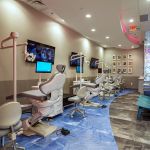The Importance of Early Detection of Oral Diseases for Better Health Outcomes
- Why Early Detection of Oral Diseases Matters
- Common Oral Diseases and Their Symptoms
- The Benefits of Early Detection of Oral Diseases
- How to Monitor Your Oral Health
- How to Get Professional Help for Oral Health Issues
The importance of early detection of oral diseases cannot be overstated. Many oral health problems, such as cavities, gum disease, and even oral cancer, can progress without obvious symptoms in the early stages. By detecting these issues early, you can take action to treat them before they develop into more serious, costly, and potentially irreversible conditions.
Early diagnosis also allows for less invasive and more affordable treatment options, which is why regular dental checkups and monitoring are crucial for maintaining long-term oral health.
Some common oral diseases that benefit greatly from early detection include:
- Cavities (Dental Caries): Early stages of cavities may not cause pain but can be treated with a simple filling before they reach more severe stages, which would require more extensive treatment like a root canal.
- Gum Disease (Gingivitis and Periodontitis): Gingivitis often starts with bleeding gums and mild irritation. If untreated, it can lead to periodontitis, which may cause tooth loss. Early detection allows for simple treatments like professional cleaning to reverse the condition.
- Oral Cancer: Symptoms such as unexplained mouth sores or persistent pain in the mouth can be signs of oral cancer. If detected early, oral cancer has a much higher chance of successful treatment, often requiring minimal intervention compared to later stages.
- TMJ Disorders: Pain or discomfort in the jaw and surrounding muscles can signal a temporomandibular joint (TMJ) disorder. If caught early, physical therapy or dental appliances may be used to prevent worsening symptoms.
Recognizing the early signs and symptoms of these diseases is essential for preventing complications and ensuring your oral health remains in top condition.
Early detection of oral diseases offers several significant benefits:
- Prevention of Serious Conditions: Identifying oral health issues early allows you to prevent more serious diseases such as gum disease, tooth loss, or even oral cancer. Early treatment is often simpler and more effective.
- Cost-Effective Treatment: Treating oral diseases in their early stages is less expensive. For example, treating a small cavity is much more affordable than dealing with a root canal or extraction.
- Less Invasive Procedures: Early treatment typically requires less invasive methods. Catching a problem early can allow for less drilling, fewer injections, and less overall discomfort.
- Improved Overall Health: Oral health is closely linked to overall health. Early detection of oral diseases helps prevent issues like heart disease and diabetes, which have been linked to poor oral health.
With the numerous advantages of early detection, regular visits to your dentist and self-monitoring are essential for keeping your oral health at its best.
Keeping track of your oral health is an important part of detecting diseases early. Here’s how you can monitor your oral health at home:
- Check for Changes in Your Mouth: Look for sores, red or white patches, or unusual lumps that could indicate an underlying issue. If you notice anything unusual, consult your dentist immediately.
- Brush and Floss Regularly: Maintaining a consistent oral hygiene routine can help prevent the onset of gum disease and cavities. Brushing twice a day and flossing daily helps keep your teeth and gums healthy.
- Monitor Your Gums: Healthy gums should be pink and firm. If they bleed easily or become swollen, it could be a sign of gingivitis or early gum disease.
- Stay Hydrated: Drinking plenty of water is essential for oral health. It helps wash away food particles and bacteria that can contribute to cavities and gum disease.
By regularly monitoring your oral health, you can detect changes early and take proactive steps to maintain a healthy mouth.
If you notice any concerning symptoms or simply want a professional evaluation of your oral health, visiting a dentist is essential. Regular dental checkups allow your dentist to identify potential problems before they become serious. They can also provide professional cleanings that remove plaque and tartar buildup, which can lead to gum disease if left untreated.
For expert dental care and early detection of oral diseases, consider visiting Dentistry Toothtruth, where you can access the latest dental treatments and preventive care options tailored to your needs.
Early detection saves both time and money—investing in your oral health today can lead to a lifetime of healthy smiles.







 The Smile Institute Advanced Dentistry & Orthodontics4.0 (256 review)
The Smile Institute Advanced Dentistry & Orthodontics4.0 (256 review) Dr. David Scharf - Long Island Periodontist & Dental Implants4.0 (234 review)
Dr. David Scharf - Long Island Periodontist & Dental Implants4.0 (234 review) Pope Family Dentistry5.0 (7 review)
Pope Family Dentistry5.0 (7 review) Braces Braces4.0 (202 review)
Braces Braces4.0 (202 review) Dental Playground3.0 (35 review)
Dental Playground3.0 (35 review) Dr. Braden H. Stoltenberg, DDS4.0 (11 review)
Dr. Braden H. Stoltenberg, DDS4.0 (11 review) The Importance of Oral Health Education During Pregnancy for a Healthy Pregnancy
The Importance of Oral Health Education During Pregnancy for a Healthy Pregnancy Best Tips for Brushing Your Teeth Properly for Healthy Gums: Essential Techniques for Oral Health
Best Tips for Brushing Your Teeth Properly for Healthy Gums: Essential Techniques for Oral Health Why Skipping Dental Checkups Can Lead to Bigger Oral Health Problems
Why Skipping Dental Checkups Can Lead to Bigger Oral Health Problems Advantages of Porcelain Dental Restorations
Advantages of Porcelain Dental Restorations How Can Diabetes Cause Tooth and Gum Problems? Preventing and Managing Oral Health Issues
How Can Diabetes Cause Tooth and Gum Problems? Preventing and Managing Oral Health Issues Healthy Habits for Promoting Good Oral Health and Hygiene: Tips for a Healthy Smile
Healthy Habits for Promoting Good Oral Health and Hygiene: Tips for a Healthy Smile